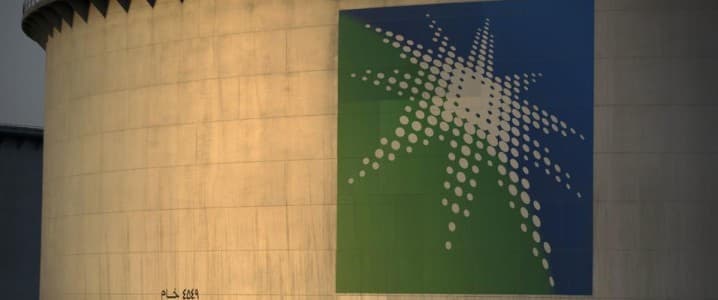Business
Trump’s Oil Price Doctrine Poses Challenges for Saudi Aramco

The oil market faces significant challenges as Saudi Arabia’s state-owned company, Aramco, navigates the complex landscape shaped by U.S. President Donald Trump’s oil price doctrine. This situation has arisen following past incidents where Saudi Arabia engaged in aggressive price wars that not only affected global oil prices but also U.S. shale producers. An early 2020 oil price war aimed to destabilize American shale producers by significantly increasing oil output, mirroring tactics from the 2014-2016 period.
In response to Saudi Arabia’s actions, Trump communicated directly with Crown Prince Mohammed bin Salman on April 2, 2020. He warned that if OPEC did not reduce production to stabilize prices, he would support legislative measures to withdraw U.S. military presence in Saudi Arabia. This conversation underscored the fragile relationship between the two nations and highlighted the potential consequences for Saudi Arabia should it attempt to disrupt the established oil price range favored by the U.S.
The ‘Trump Oil Price Range’ serves as a critical element of Trump’s economic strategy. This range includes a price floor designed to support U.S. shale producers, generally set above $35 per barrel of West Texas Intermediate (WTI), which translates to about $40 per barrel of Brent crude. On the upper end, the ceiling is approximately $70 per barrel of WTI, correlating with a gasoline price beneficial for U.S. economic growth. Maintaining this price ceiling is vital as a rise above it could negatively impact consumer spending and, subsequently, Trump’s re-election prospects.
Historical analysis indicates that U.S. presidents have a high success rate in securing re-election when the economy is not in recession. Since 1896, incumbent presidents have won re-election 11 out of 11 times when the economy is stable, while only one has succeeded during a recession. Therefore, Trump’s administration remains cautious about Saudi Arabia’s influence on oil prices, aware of the broader economic implications.
Trump’s strategy also includes potential legislative measures, such as the NOPEC Bill, which could impose legal consequences on OPEC members for price manipulation. This bill would dismantle OPEC’s sovereign immunity in U.S. courts, allowing for legal action against Saudi Arabia and its oil practices. Such a move could jeopardize Aramco’s extensive investments in the U.S., estimated at $1 trillion, and potentially lead to asset seizures or restrictions on financial transactions in U.S. dollars.
Currently, the Brent crude price hovers around $70 per barrel, significantly below Saudi Arabia’s fiscal breakeven price of $90.9 per barrel. This discrepancy has compelled Aramco to adjust its financial strategies, including a substantial cut to its quarterly dividend after reporting a 5% year-on-year drop in profits for the first quarter of 2023. The company now anticipates its annual dividends will decrease to $85.4 billion, a steep decline from $124.3 billion projected for 2024.
The implications of these financial adjustments are profound, particularly considering Aramco’s initial public offering was heavily dependent on maintaining high dividend levels. As the company seeks alternative means to raise capital, it has already issued $5 billion in bonds and may explore further bond offerings to manage its growing debt profile. These actions could shift decision-making power within the company, especially if a significant portion of bondholders are linked to U.S. interests.
Additionally, Aramco is contemplating selling key assets and pipeline operations to generate revenue. While these proceeds are intended to support Saudi Arabia’s Vision 2030 initiative—which aims to diversify the economy and reduce dependence on oil—there are concerns about the potential misallocation of funds towards extravagant projects, such as the scaled-back Neom City and the upcoming FIFA World Cup 2034.
In conclusion, the intersection of U.S. foreign policy, Saudi Arabia’s economic stability, and the operational realities faced by Aramco creates a precarious situation for the Kingdom. The ongoing influence of Trump’s oil price doctrine leaves Saudi Arabia grappling with financial pressures while navigating the complex dynamics of global oil markets. As Aramco adjusts its strategies to align with these realities, the long-term consequences for both the company and the Kingdom remain to be seen.
-

 World5 months ago
World5 months agoSBI Announces QIP Floor Price at ₹811.05 Per Share
-

 Lifestyle5 months ago
Lifestyle5 months agoCept Unveils ₹3.1 Crore Urban Mobility Plan for Sustainable Growth
-

 Science4 months ago
Science4 months agoNew Blood Group Discovered in South Indian Woman at Rotary Centre
-

 World5 months ago
World5 months agoTorrential Rains Cause Flash Flooding in New York and New Jersey
-

 Top Stories5 months ago
Top Stories5 months agoKonkani Cultural Organisation to Host Pearl Jubilee in Abu Dhabi
-

 Sports4 months ago
Sports4 months agoBroad Advocates for Bowling Change Ahead of Final Test Against India
-

 Science5 months ago
Science5 months agoNothing Headphone 1 Review: A Bold Contender in Audio Design
-

 Top Stories5 months ago
Top Stories5 months agoAir India Crash Investigation Highlights Boeing Fuel Switch Concerns
-

 Business5 months ago
Business5 months agoIndian Stock Market Rebounds: Sensex and Nifty Rise After Four-Day Decline
-

 Sports4 months ago
Sports4 months agoCristian Totti Retires at 19: Pressure of Fame Takes Toll
-

 Politics5 months ago
Politics5 months agoAbandoned Doberman Finds New Home After Journey to Prague
-

 Top Stories5 months ago
Top Stories5 months agoPatna Bank Manager Abhishek Varun Found Dead in Well









